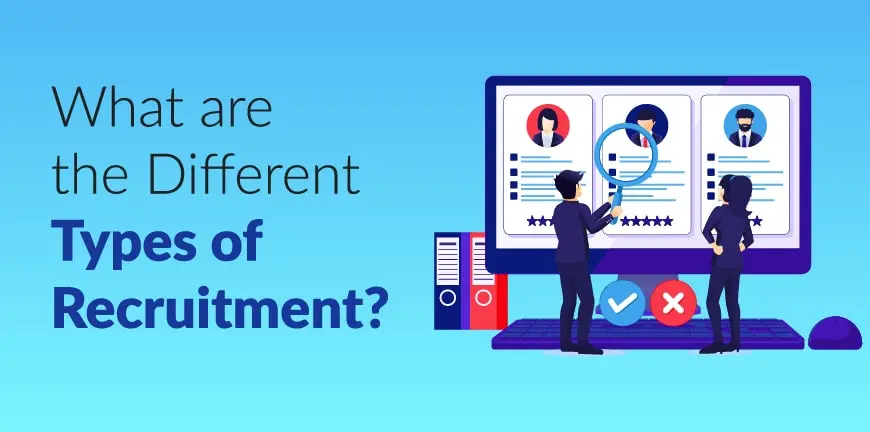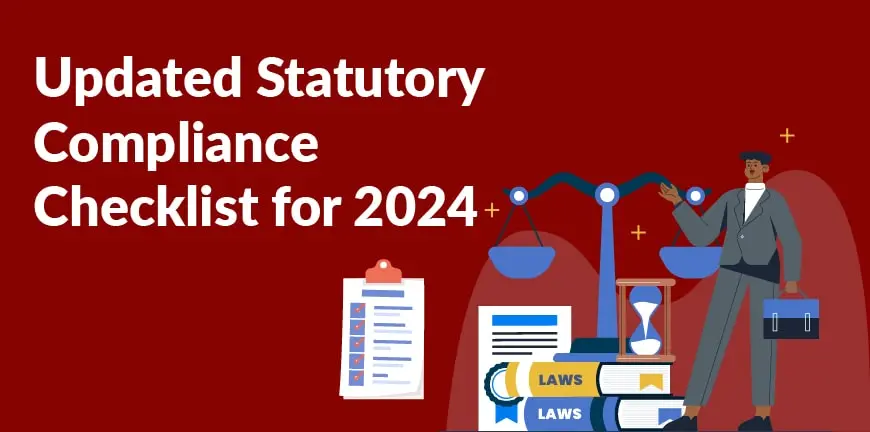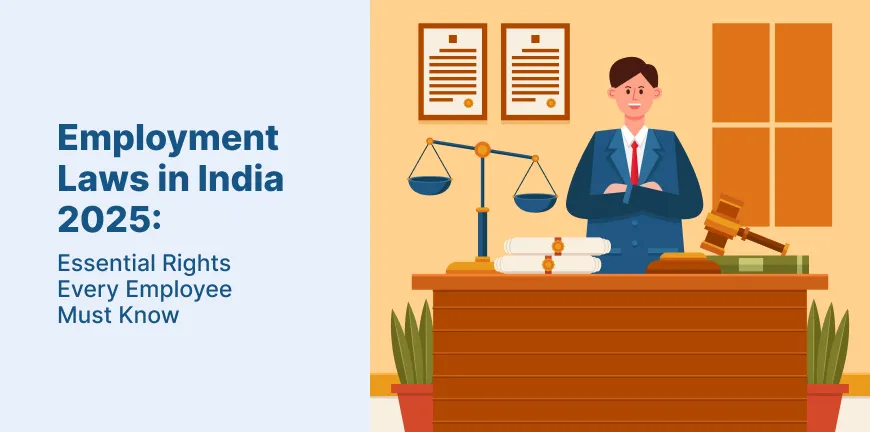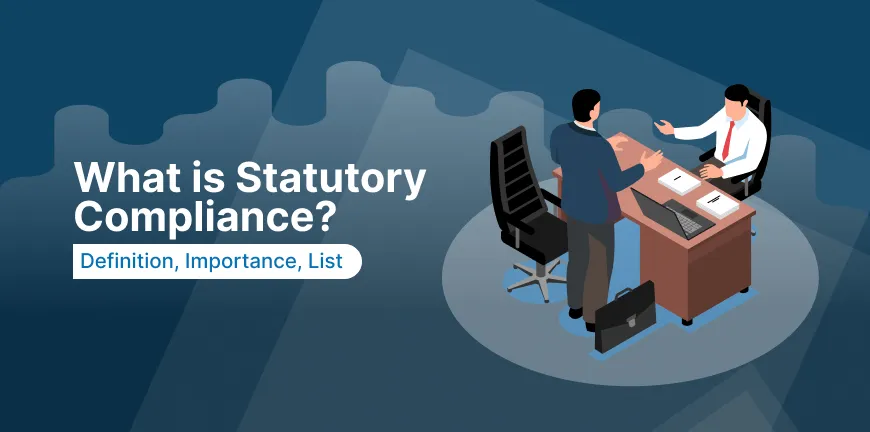
What are the Different Types of Recruitment?
25/06/2024
Manufacturing Industry Talent Insights Report 2024
26/06/2024Compliance can be a difficult thing to manage, especially for startups and smaller companies, and others where it is difficult to convince others that it is a necessity. When your compliance needs are left unattended to, the company loses its good reputation and could also invite fines and penalties from the government. You need an HR statutory compliance checklist. But what exactly is statutory compliance?
What Is Statutory Compliance?
A framework established by the government to regulate the operations of a business, which includes how a business treats its employees, financial practices, HR policies etc. is called statutory compliance. It is to be noted that HR statutory compliance is a subset of statutory compliance, which in turn is compliance with an enactment or a law. An HR statutory compliance checklist can go a long way in ensuring such compliance. On the other hand, regulatory compliance involves compliance with rules proposed by government agencies and other bodies, not directly from the government.
What is the Importance of an HR Statutory Compliance Checklist?
Managing and following an HR statutory compliance checklist is very important because it ensures that companies do not pay hefty fines or face legal charges for non-compliance and that the reputation of the company is preserved. Also, if the company wants to avail itself of any benefits from the Government, if it is found eligible for it, then it must be compliant too. Let us now look at the benefits of HR statutory compliance in more detail:
1. No fines or legal charges
When a company is compliant with the laws set by the Government, it does not need to pay any hefty fines or legal charges. This means that the company can save a lot of money not just on legal fees but can ensure that its image is not tarnished by the legal charges brought against it in a court of law.
2. Company’s reputation improves
The company’s reputation remains intact, and over time, could even improve as it stays committed to employee welfare and happiness, in line with statutory requirements. A good word of mouth will ensure that the reputation of the company improves over time and the company is able to establish a good relationship not only with its employees but with customers too.
3. Makes company eligible for benefits
The Government of India, like most developing nations of the world, offers incentives to companies who want to venture into certain industries it is looking to develop and gain India a good reputation. For this reason, too, companies need to be compliant because if they are not, they may not be considered eligible and could miss out on these incentives.
4. Makes loyal employees and customers
As mentioned earlier, having a better brand reputation (as a result of being compliant) creates a work environment too where employees are satisfied as work hours are apt and salaries are paid on time. They have peace of mind and better composure and talk to customers in a better way, forging great relationships and bringing in much needed revenue for your company.
5. Wins the trust of investors and stakeholders
Investors and stakeholders are more convinced of the goodwill and believe that the trust and the confidence they had in the company is paying off, not just in terms of reputation but also as increased revenue for all the above reasons. They can also justify the stance they have on various issues and can quote the company as doing a great job, thanks to the good name the company has earned.
Updated Statutory Compliance Checklist
In the previous section, we discussed the benefits of HR statutory compliance and that of maintaining a checklist. The following are the basic points in an HR statutory compliance checklist.
1. Employment contracts
All employees must be on a written contract, even if they are regular employees, as per the labor laws set by the government.
2. Minimum wages
Ensure that all employees are paid a minimum wage as required by the government.
3. Overtime
Ensure that the employees who work more than the required hours are paid overtime based on the hours exceeded and their pay.
4. Workplace safety
Ensure that your workers work in a danger-free workplace. Avoid the risk of any hazards by conducting safety checks in environments that are risky.
5. Anti-Discrimination Policy
This is perhaps the most important point of any HR statutory compliance checklist. Ensure that you do not discriminate between employees based on their race, color, gender, or sexual orientation.
6. Harassment Protection
Your policies must prevent there being any harassment or violation of the code. Companies also have their internal policies on harassment too, to support their employees.
7. Family and Medical Leave
Ensure that you comply with all family and medical leave policies that you have discussed with your employees, and ensure they are as per government laws.
8. Payroll taxes
Ensure that just the right tax deduction is done, to pay off all state and government taxes appropriately.
9. Record-keeping
Records must be maintained correctly, including payroll records, tax filings, employee records etc.
10. Worker classification
Workers must be correctly classified as regular or contract employees. This prevents any confusion and helps allocate the right benefits and allowances to them.
Looking for a Statutory Compliance Partner?
Alp Consulting has been managing statutory compliance now for over a decade. With rich experience already in talent management and acquisition, Alp can not only manage your compliance needs directly but also hire people who can help with your compliance needs. We have a solution for every compliance problem you may have, no matter how big or small. Talk to us today.
Contact Us For Business Enquiry

Hariharan Iyer
Hariharan Iyer is the Vice President – Operations at ALP Consulting, bringing over 40+ years of experience in HR outsourcing and labour law compliance. He leads end-to-end HRO operations, ensuring process efficiency, statutory compliance, and seamless service delivery for clients across industries. With a strong background in labour law governance and workforce management, Hariharan plays a key role in driving operational excellence and compliance-led HR solutions at ALP Consulting.




